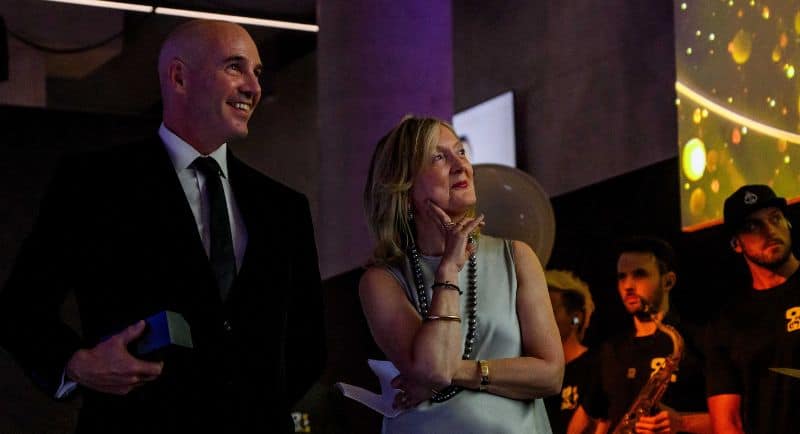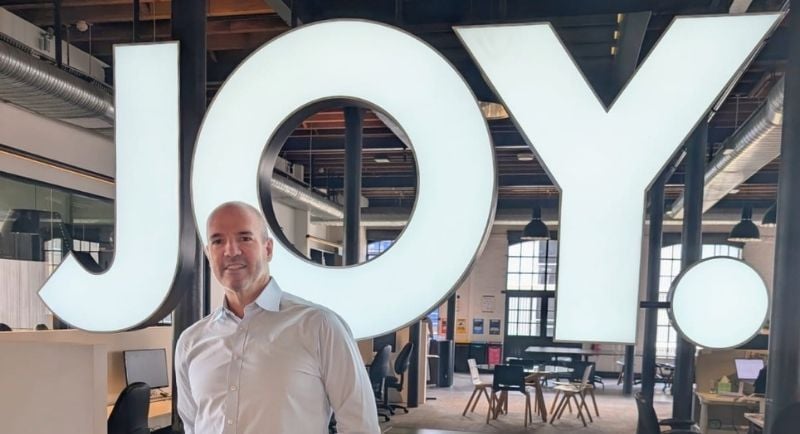As Peter Horgan is awarded the Mediaweek Icon for 2025, it’s clear few people have impacted Australia’s media landscape quite like him – although he’s the last to agree.
The former Omnicom Media Group ANZ CEO has redefined what effective leadership looks like over his time in the industry.
As he’s honoured as Mediaweek’s 2025 Icon, Horgan, known by many as ‘Horgs’, reflects on the lessons, people, and pivotal moments that have shaped his career.
“I think it really comes down to the people and the clients you engage with,” he tells Mediaweek. “You learn a lot through the big wins, but you learn even more in recovery mode… when you need to move quickly, re-engineer what you’re delivering for a client, and that has implications for the whole place, not just the product, but more importantly, the culture.”
It’s a term that pops up often when Horgs talks about leadership. And it’s his steady, culture-first approach that’s earned him a reputation as one of the industry’s most respected figures.

Horgs’ journey at Omnicom began during a defining period for the industry. In the early 2000s, OMD was formed from the merger of Clemenger and DDB’s media departments, a process he describes as a “Harvard case study in how not to merge two businesses”.
“The cultures were still very separate,” he recalls. “Clients could smell that.”
Enter James Greet, who brought what Horgs calls “a brand of intensity” that forced the two worlds together. “Talk about the right leadership for that moment, that challenge. His particular style absolutely embodied that,” he says.
The rise of OMD
Soon after, Greet handed the reins to three rising leaders: Horgs, Mark Coad, and Leigh Terry. As he puts it, “the keys of this enormous thing” were thrown to them, and together, they grew OMD from a mid-sized player into a powerhouse, winning major clients like Telstra, Johnson & Johnson, and more.
But the agency’s success came with growing pains. Being a culture-led business at a time when others were focused on process and efficiency led OMD to “want to be loved”, meaning it made soft decisions internally.
“But trying to be loved, you end up being pitied and despised, because people don’t want their brands linked to something that’s not fit for the future,” Horgs says.
The turning point came when Telstra’s then-CMO, Mark Buckman, gave Horgs some “brutal honesty”, which he says is “the kindest thing a client can do”. It forced OMD to confront weaknesses and rebuild with accountability and clarity.
‘People want to be part of a winning culture’
“You never want to go through that again,” he says, “but it teaches you that the magic is in holding your people to account. People want to be part of a winning culture.”
When he stepped into the top role at Omnicom Media Group in 2016, Horgs inherited not just a thriving network of agencies, but also an industry in flux. Challenges came fast – the rise of procurement, programmatic buying and the subsequent reckoning on transparency, to name a few.
“The programmatic gold rush teased out a lot of short-termism and erosion of trust,” he recalls. “We took a position early that we weren’t going to participate in that and we watched for five years as rivers of gold moved against us, wondering if we’d made the right decision.
“Then Mark Pritchard [from Procter & Gamble] called out the murky supply chain, and suddenly people wanted to hear more about this transparency thing again.”
That stance, he says, paid off. It drove “an enormous amount of dividend” for the group, not just financially, but also reputationally. Honesty and accountability was something clients desired, and it became a defining part of OMG’s brand.
Peter Horgan’s icons
In more recent years, he has guided the group through new waves of disruption like the rise of AI and its implications on efficiency and effectiveness in the industry. While others fixate on the machines, however, Horgs is more focused on the humans.
“I think you could argue that as an industry, we haven’t been great at automation,” he says. “And you know, the hypothesis of ‘the machines do what they’re good at to allow the humans to do what they’re great at’, or ‘the machines completely take over’… I don’t think anyone knows the answer to that yet.”
Throughout his career, Horgs has carried lessons from the people who shaped him – particularly the late Pam Lane, who he described as a “consummate relationship person,” and the leadership trio at OptiMedia – Simon Rush, Belinda Rowe, and Mark Kennedy – who showed him “the power of teams and the diversity of skills”.

Belinda Rowe with Peter Horgan
“That’s stayed with me my whole career,” he says. “The best leadership teams are built on diversity of thought, not uniformity. You make sure everyone’s heard, then you make a call. Some leaders hollow out the layers below them by overruling everyone. Others are too benign. You’ve got to strike the balance.”
Ask him what kind of leader he is now, and Horgs will simply say “authentic”, carrying the lessons he learnt with him. “And I hope that’s a fairly consistent sentiment that comes back from the market,” he says.
One of the biggest things he learnt, and has begun to teach, is the importance of listening. Striking the balance between making sure everyone is heard, and making decisions as a leader that might upset some in the room, is a tough challenge, but if you know everyone’s had their say, it’s a worthwhile one.
“You get different leadership styles, you know, from the autocratic to the completely benign, and there’s a point where you have to make sure everyone is heard.”
But Horgs’ advice for the new wave of agency talent goes beyond listening, it is to be pragmatic. Be curious, build relationships, and embrace teamwork.

“Curiosity has always served me well,” he explains. “Get into the details. Surround yourself with people who ask questions. And invest in relationships, they’re the glue of this business.”
He’s equally clear about the realities of career growth: “Get in there, immerse yourself, and absorb as much information as you can early. Choose a field, build expertise, and get noticed. People who don’t get noticed will be commoditised and replaced.”
And for those fretting about AI? Don’t stress, he says. Human oversight is something that is going to be “non-negotiable” for clients.
Finding JOY.
Now a few weeks into his new role at independent agency JOY, Horgs sounds reinvigorated.
“I’d always wanted to have a crack at my own thing, or something I’ve got a piece of. The liberation of being able to have the levers of your own destiny within your own grasp, it obviously comes with a lot of accountability, but it is so, so refreshing,” he says.
“I’m still incredibly close to the OMG team, that is a tough community to no longer be a part of, and I miss them dreadfully,” he admits. “But the possibility, the proposition of what we have here at JOY, the people… my mind is abuzz with where we can take it all.”

JOY’s mantra, fittingly, is “grow with joy”, something Horgs embodies.
“Grow your brand, grow your expertise, grow your remit,” he says. “That’s the challenge I’ve set for the team. The possibilities are endless.”
Horgs has also spent a majority of his career as a contributor to the industry outside of his 9-5.
From the Media Federation of Australia to the Australian Association of National Advertisers, he has tirelessly worked to bring organisations together to better mirror those they represent. In fact, for a long time, Horgs was the only agency person on the AANA board.
“As trade representatives, I’ve always said we should park all our differences at the door when you walk in, and discuss how we can collectively improve this industry. Yes, the competition of different agencies can give us short-term competitive advantage, but if we join forces, we can genuinely make a difference.
“It revolutionised what was quite a stand-offish dynamic,” he continues.
It’s that balance between competition and collaboration, or pragmatism and people-first leadership, that has defined Horgs’ career.
And if you asked him what his younger self would make of where he’s ended up, and now being named a Mediaweek Icon of the industry? He laughs, “Probably surprised. Surprised, but proud.”

